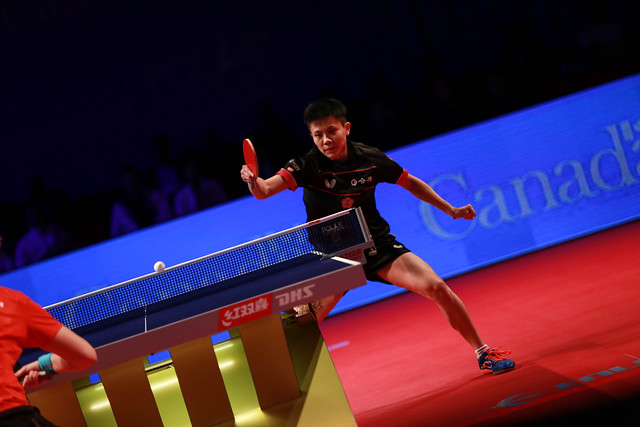by Ian Marshall, ITTF Publications Editor
After winning the fourth and fifth games with a degree of comfort, Kasumi Ishikawa appeared to be asserting control; the close sixth game, secured by the minimal two point margin in favour of Lee Ho Ching, changed the momentum of the contest.
Lee Ho Ching made the better start in the deciding seventh game; she went ahead 4-1 and led 5-2 when the players changed ends. She increased the lead to 7-3 before at 10-6 holding four match points; she needed just the one opportunity.
Success for Lee Ho Ching and one step further than on her one prior appearance; in 2014 in Sendai, when receiving a direct entry to the main draw, she had been beaten in the opening round by Hungary’s Georgina Pota.
Progress for Lee Ho Ching, conversely for Kasumi Ishikawa the defeat meant the end of progress. On debut in 2011 in Singapore she had finished in third position in her first stage group; one year later in Kobe she reached the quarter-finals, before in 2014 in Linz ending her journey in the semi-finals. A fourth appearance, it was one step further, in 2015 in Sendai, she advanced to the final where China’s Liu Shiwen ended aspirations.
Defeat for Kasumi Ishikawa, for colleague and defending champion, Miu Hirano there were no such travails; the no.4 seed, she accounted for Sweden’s Matilda Ekholm, the no.14 seed, in five games (5-11, 11-6, 11-9, 11-4, 11-2).
Finding a rhythm against the controlled top spin play of the Swede was the adjustment Miu Hirano was required to make after losing the opening game; once the close third game had been secured, Miu Hirano gained in confidence and progressed from strength to strength.
It is the second time that Matilda Ekholm has competed in the Women’s World Cup; in 2012 she played in Huangshi finishing in fourth place in her initial stage group.






